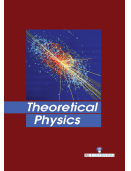Physics

The advancement of science depends in general on the interplay between experimental studies and theory. In
some cases, theoretical physics adheres to standards of mathematical rigor while giving little weight to experiments and observations. Theoretical physicists use mathematics to describe certain aspects of Nature. Sir Isaac Newton was the rst theoretical physicist, although in his own time his profession was called "natural philosophy". The main purpose of theoretical physics is to understand physical phenomena. Accurate understanding is possible only using mathematical models. In the best case, experimental observations can be explained using only a small number of basic assumptions. Using the models it is possible to calculate the properties of the system under di erent conditions and predict new phenomena. Today's theoretical physicists are often working on the boundaries of known mathematics, sometimes inventing new mathematics as they need it, like Newton did with calculus.